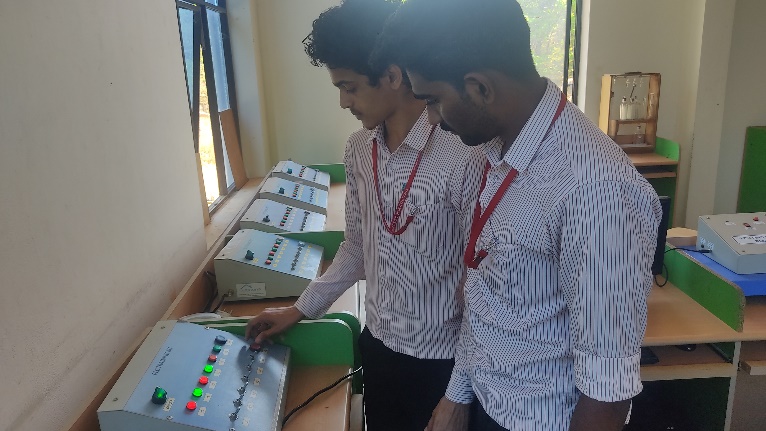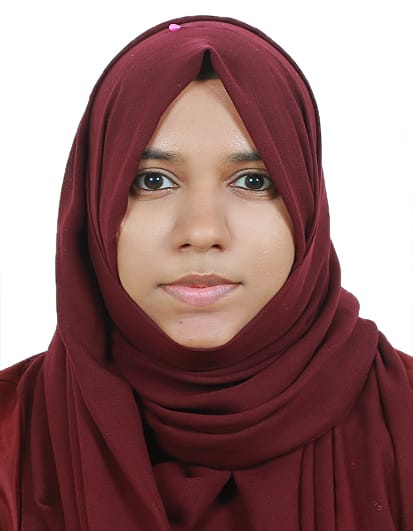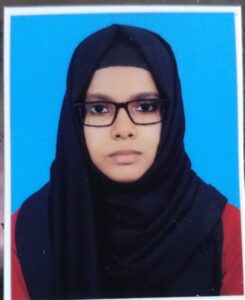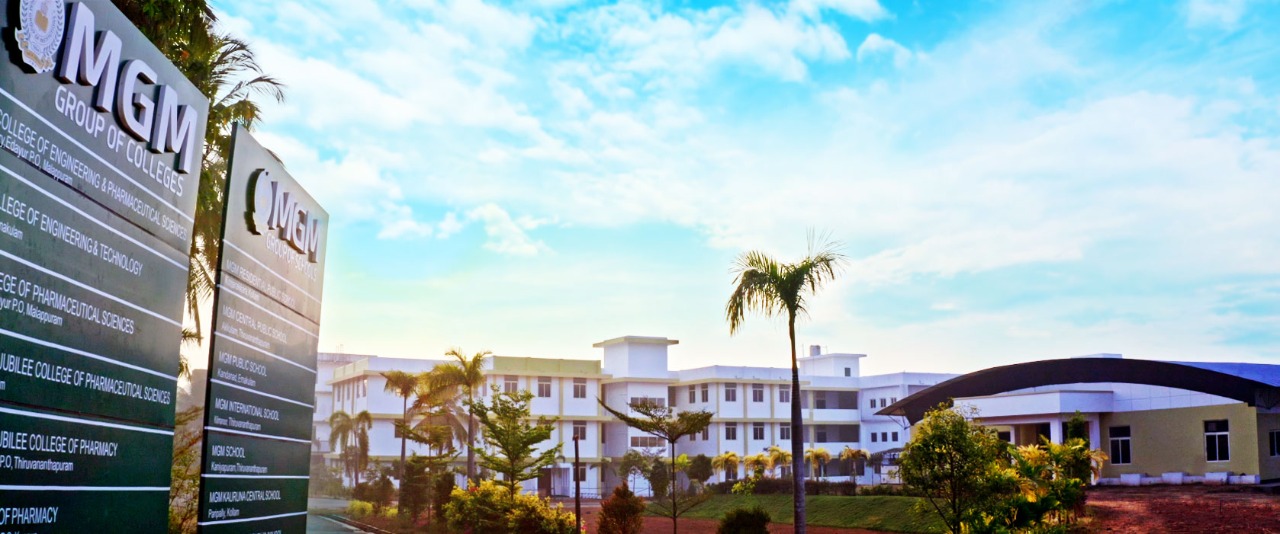DEPARTMENT INTRODUCTION
The Department of Mechatronics engineering (MCT) was started in 2015 with an intake of 60. The B-Tech in MCT degree program follows the scheme and curriculum of “Kerala Technical University” to which the College is affiliated. This course is 8 semesters according to AICTE standards.
The Department is supported by highly qualified, efficient and committed teachers. They are periodically delegated to attend conferences and various faculty development programs to keep abreast of the latest developments in the field of the Mechatronics Engineering department. Faculty in the department use facilities such as Moodle and other combined teaching and learning aids to improve the quality of teaching and learning. Faculty members and students are also active participants in NPTEL’s online courses with many accolades. Our emphasis is on putting theoretical knowledge to practical use which leads to the development of highly efficient engineers The department is constantly striving to improve students’ knowledge, skills and attitude and many value-added programs such as lectures, workshops, technical questionnaires, project exhibitions, design competitions, job presentations, personality development courses, etc. to facilitate this.
For effective student guidance and counseling, a counseling system is introduced which includes class advisor per class. The class advisor is in charge of the entire class and each advisor keeps an eye on a group of students. They manage student attendance, discipline and personal issues. Regular parent-teacher meetings are held to evaluate student performance. The mechatronics engineering department has well-equipped state-of-the-art laboratories to provide students with the necessary and sufficient support of practical knowledge, as well as encouraging them to test their innovative research and development idea and a library with a large collection of books and magazines. The Mechatronics Engineering department effectively affix teaching of engineering education to stimulate research in different zones. We encourage innovative ideas and keep in hands with students for project activities. Our graduates are in high demand by industry and often promoted quickly to senior positions around the world. A degree in Mechatronics Engineering is ideal preparation for starting a career in the Automation, electronics, robotics, manufacturing, materials processing, aerospace, medical, control electronics. Many of our graduates go on to careers that make an important contribution to society in terms of wealth generation, safety and environmental sustainability.
VISION
The vision of the department is to mould competent mechatronic engineering graduates having academic and industrial excellence in industrial automation research and innovative product development driven by mechatronics systems.
MISSION
- Mould Mechatronics Engineering graduates responsive to the industrial needs and social commitment.
- Develop theDepartment as a centre of excellence in Technical Education and Research and in allied areas.
- Impart the right blend of knowledge and skills to students and enable them to apply it in real life
- Achieve innovation in developing industrial products with social responsibility
PROGRAM EDUCATIONAL OBJECTIVES
- Graduates shall have the ability to work in multidisciplinary environment with good professional and commitment.
- Graduates shall have the ability to solve the complex engineering problems by applying electrical, mechanical, electronics and computer knowledge and engage in lifelong learning in their profession.
- Graduates shall have the ability to lead and contribute in a team with entrepreneur skills, professional, social and ethical responsibilities.
- Graduates shall have ability to acquire scientific and engineering fundamentals necessary for higher studies and research.
Programme Outcome (PO)
- PO 1. Engineering knowledge: Apply the knowledge of mathematics, science, engineering fundamentals, and an engineering specialization to the solution of complex engineering problems.
- PO 2. Problem analysis: Identify, formulate, review research literature, and analyze complex engineering problems reaching substantiated conclusions using first principles of mathematics, natural sciences, and engineering sciences.
- PO 3. Design/development of solutions: Design solutions for complex engineering problems and design system components or processes that meet the specified needs with appropriate consideration for the public health and safety, and the cultural, societal, and environmental considerations.
- PO 4. Conduct investigations of complex problems: Use research-based knowledge and research methods including design of experiments, analysis and interpretation of data, and synthesis of the information to provide valid conclusions.
- PO 5. Modern tool usage: Create, select, and apply appropriate techniques, resources, and modern engineering and IT tools including prediction and modeling to complex engineering activities with an understanding of the limitations.
- PO 6. The engineer and society: Apply reasoning informed by the contextual knowledge to assess societal, health, safety, legal and cultural issues and the consequent responsibilities relevant to the professional engineering practice.
- PO 7. Environment and sustainability: Understand the impact of the professional engineering solutions in societal and environmental contexts, and demonstrate the knowledge of, and need for sustainable development.
- PO 8. Ethics: Apply ethical principles and commit to professional ethics and responsibilities and norms of the engineering practice.
- PO 9. Individual and team work: Function effectively as an individual, and as a member or leader in diverse teams, and in multidisciplinary settings.
- PO 10. Communication: Communicate effectively on complex engineering activities with the engineering community and with society at large, such as, being able to comprehend and write effective reports and design documentation, make effective presentations, and give and receive clear instructions.
- PO 11. Project management and finance: Demonstrate knowledge and understanding of the engineering and management principles and apply these to one’s own work, as a member and leader in a team, to manage projects and in multidisciplinary environments.
- PO 12. Life-long learning: Recognize the need for, and have the preparation and ability to engage in independent and life-long learning in the broadest context of technological change.
DEPARTMENT FACILITIES
- MECHATRONIC SYSTEMS LAB
Mechatronic systems lab aims at giving hands on experience to students in the practical aspects operation of robots, sensors and simulation studies using dedicated software. PLC programming gives introduction to automation.




 SABIRA JAMALUDHEEN C
HOD -MCT
M-TECH -Instrumentation and Control Systems
6+ years Experience
SABIRA JAMALUDHEEN C
HOD -MCT
M-TECH -Instrumentation and Control Systems
6+ years Experience
 FATHIMA SHERIN M K
ASSISTANT PROFESSOR -MCT
M-TECH -Instrumentation and Control Systems
4+ years Experience
FATHIMA SHERIN M K
ASSISTANT PROFESSOR -MCT
M-TECH -Instrumentation and Control Systems
4+ years Experience
 RASIYA UU
ASSISTANT PROFESSOR -MCT
M-TECH -Instrumentation and Control Systems
2+ years Experience
RASIYA UU
ASSISTANT PROFESSOR -MCT
M-TECH -Instrumentation and Control Systems
2+ years Experience
 SULTHANA SITHARA S.K
ASSISTANT PROFESSOR -MCT
M-TECH -ELECTRONICS AND COMMUNICATION
2+ years Experience
SULTHANA SITHARA S.K
ASSISTANT PROFESSOR -MCT
M-TECH -ELECTRONICS AND COMMUNICATION
2+ years Experience
